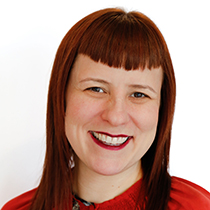Sustainable San Francisco
The city’s most sustainable features will be on display at A’23!
San Francisco is one of the world’s most sustainable, design-forward cities. It should come as no surprise that Moscone Center, where we’re hosting this year’s AIA Conference on Architecture, is a shining example of the city’s sustainable practices. A’23 is your ticket to experience it all!
Here are key facts about San Francisco’s sustainability efforts and how they might enhance your conference and travel experience.
Moscone Center is LEED Platinum certified
- The Moscone Center is the first convention center in the U.S. to achieve LEED Platinum certification with its 2018 North and South Complex expansion. It also won AIA San Francisco’s 2020 Architecture Citation Award. The expansion turned the traditional black box convention center inside-out, using program form, transparency, circulation, light, and landscape to connect visitors to the city and the neighborhood to the activity in the building.
- AIA’s free shuttle service between conference hotels and Moscone Center lowers your carbon footprint as you travel between venues (see the shuttle schedule in the A’23 app).
- Moscone Center has the lowest carbon footprint per delegate of any major convention center in North America.
- It’s the highest-scoring LEED Platinum convention center in the world after its award-winning 2018 expansion.
- The building’s rooftop solar panels provide about 19% of its power.
- The gray water treatment system recovers 15 million gallons of water annually, used in landscaping, street cleaning, and toilet flushing. Moscone North and South act as a small water plant for the neighborhood, unburdening the city’s sewer system.
- Following the ban on single-use water bottles, Moscone Center installed water refill stations throughout its buildings.
- As much as possible, Moscone Center donates leftover food to community food programs or composted.
- Moscone Center’s donation program gives back to the community by diverting over two million pounds of unused items (perishables and nonperishables) each year.
Learn more about Moscone Center’s LEED Platinum certification, see its 2019 scorecard, and explore its sustainability efforts here.
San Francisco is a global leader in sustainability
San Francisco has set bold goals for reducing greenhouse gas emissions and achieving carbon neutrality by 2040. The city’s tourism industry is also launching a sustainability transformation, making San Francisco a premier destination for environmentally conscious travelers.
- San Francisco International Airport (SFO) is the first airport in the world to achieve airport-wide LEED Platinum certification.
- SFO was the first airport in the world to ban single-use plastic water bottles and has more than 100 water refill stations for travelers.
- Hotels are trying to use 100% renewable energy, provide electric vehicle charging options, and produce zero waste.
- The city’s SFMTA operates the “greenest” fleet of any city in North America, with more than 50% of its transit vehicles, including light rail, cable cars, streetcars, and electric trolley buses powered by 100% hydropower.
- The city’s Bay Area Rapid Transit (BART) is 100% electric, and 97% of that power comes from low-carbon sources.
- CleanPowerSF is working to deliver a 100% renewable energy electricity supply to customers by 2025.
- San Francisco was the first city in the U.S. to ban single-use plastic checkout bags in 2007, which was extended to retail stores in 2012 and grocery stores in 2013
Beyond these facts, there are many ways to explore how San Francisco prioritizes sustainability, and A’23 is the perfect opportunity to experience it. Whether you take a tour, visit local architecture and design firms, or explore neighborhoods on your own—the city and this conference have so much to offer. Your challenge is going to be fitting it all in.
We’ll see you there!

